The Kamala Coalition: Kamala Harris inspires a new breed of political players
Within minutes of Joe Biden's selection of California Sen. Kamala Harris as his vice-presidential running mate, a video started making the rounds on Indian Whatsapp groups around the world.
In it, Harris walks into comedy writer and actress Mindy Kaling’s kitchen and immediately establishes her Madras mami (aunty) cred.
She identifies the true purpose of the Taster’s Choice coffee bottles lined up on the kitchen counter: recycled spice jars to hold your red chili, turmeric, rasam and sambar powders, of course.
Next, she proceeds to make masala dosas — the quintessential south Indian breakfast made of fermented lentil and rice batter and stuffed with a spicy potato curry.
Election 2020: Kamala Harris symbolizes Indian Americans' growing political power
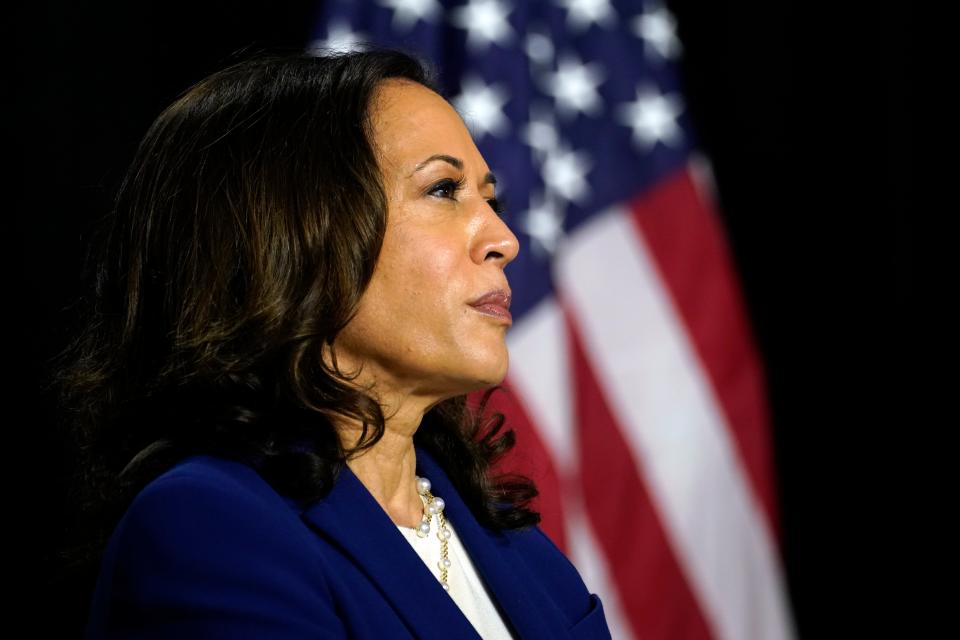
Indu Rajan, a Croton-on-Hudson, New York, resident, said watching the video crystallized what it meant to connect to a candidate at such a granular level.
“I am a huge Taster’s Choice addict and to hear her talk about her mother recycling and reusing the bottles was so everyday Indian that you felt you could easily invite her into your home,” said Rajan, an Indian immigrant who, like Harris’ mother, hails from Chennai and speaks Tamil. “To be honest, I never thought I would see a person of Indian descent on a presidential ticket in my lifetime.”
While she loves the fact that Harris' roots can be traced back to India, it is her professional record that ultimately gets Rajan's vote.
“She can hold her own against anybody in this political sphere right now. I see her as representing the best of the Indian community and not just as a token," said Rajan, who runs an event space business. "It's not like somebody is doing us a favor.”
With her nomination, Harris, the daughter of an Indian immigrant mother and a Jamaican immigrant father checked off several historical firsts: She became the first Black woman as well as the first Indian American, South Asian and Asian American person on a major party’s presidential ticket. She's also a first generation American.
Kamala Harris: How the Kamala Harris pick is playing with Indian Americans, a fast-growing and influential voting bloc
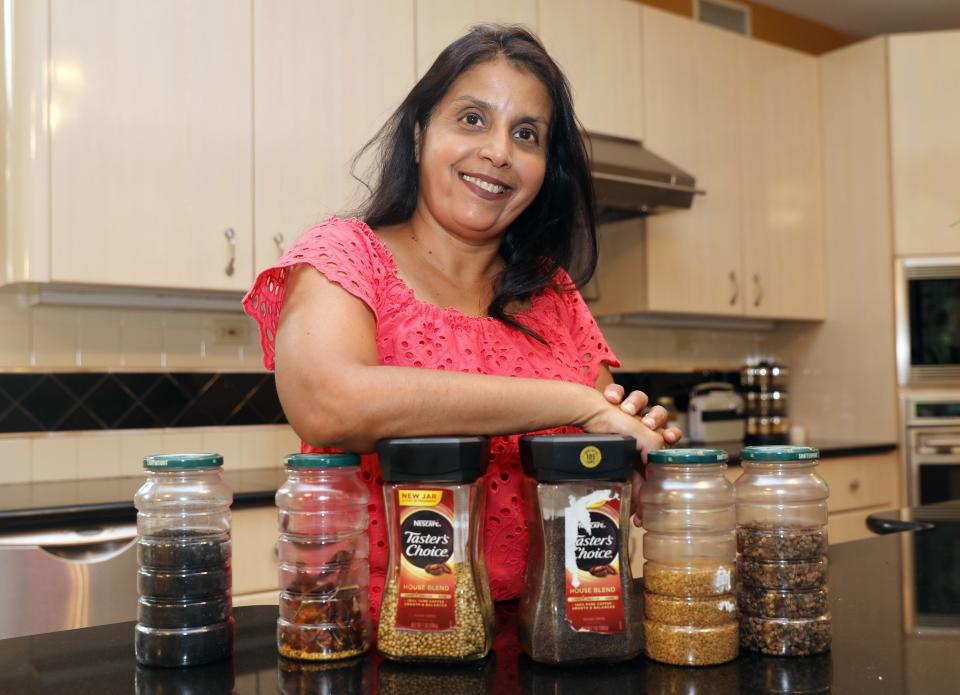
Growing up, Harris went to both a Black Baptist church and a Hindu temple. In Sanskrit, Kamala means "lotus flower" and her middle name, Devi, means "goddess." Her name is pronounced “'comma-la', like the punctuation mark," Harris wrote in the preface of her 2019 memoir “The Truths We Hold.”
For many immigrants and people of color, Harris’ nomination has come to represent the ideal of an inclusive, welcoming America that draws on the talent of the world and gives them a chance to succeed.
Call it The Kamala Coalition.
“Harris encapsulates everything Trump despises: strong woman, person of color, daughter of immigrants and someone highly intelligent and effective. She represents massive intersectionality,” said Hermian Charles, a Chappaqua, New York, resident who moved to the U.S. from Grenada at age 21 to attend Baruch College. "When I see her, I see America."
While Biden was not her first choice (she was a Bernie Sanders supporter), seeing Harris, the daughter of a fellow Caribbean islander, on the ticket has made her a more enthusiastic supporter.
As a Black mother of a 16-year-old daughter, she said representation was important to her.
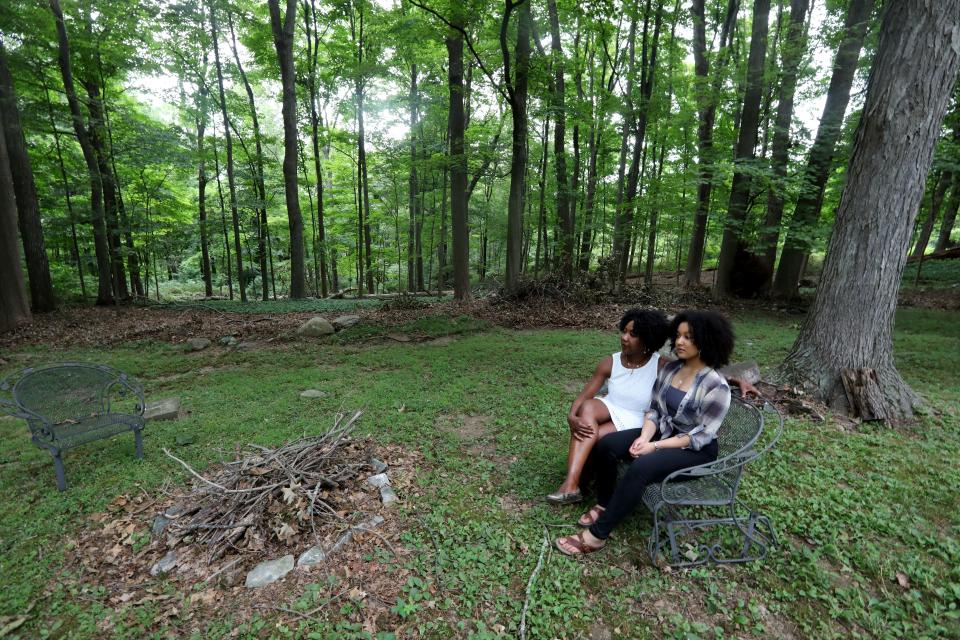
“It’s one thing to say to kids, ‘You can be anything you want to be,’" said Charles, a community volunteer and a financial advisor. "But for them to see a reflection of someone who looks like them and have experienced similar struggles as they have achieved next to the highest office in the land, I think it's significant.”
For Daigre Thomas, who moved from Jamaica to Yonkers two decades ago, the fact that Harris’ father is a successful Jamaican immigrant — who went on to teach at Stanford University — is a matter of great pride.
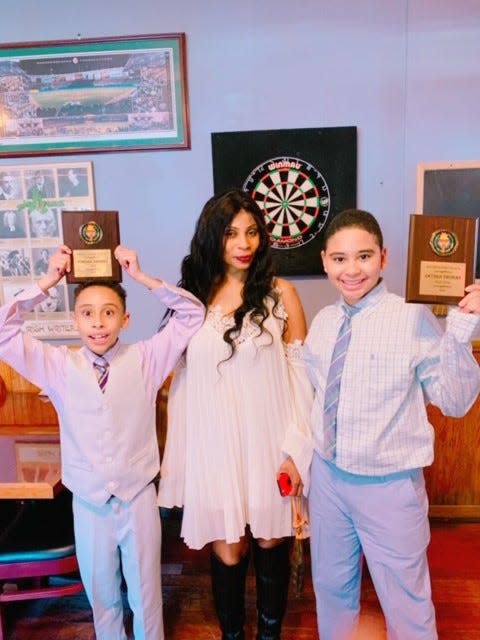
“Jamaicans are known for working hard. This news makes me feel like there is nothing my children cannot achieve,” said Thomas, a mother of 12-year-old twin boys who works three jobs: a direct support professional, a school bus monitor and as a housekeeper.
“I am a single mom and it gives me hope.”
Harris not only has the immigration experience “in her blood” but also represents the African American experience of going to school a year after her school was desegregated, said Neil Makhija, the executive director of IMPACT, an Indian-American political organization.
“She shows us that we belong and that we can aspire to leadership and public service in this country," said Makhija, who grew up in Lehighton, in Pennsylvania's coal country. "And that our views and our background and our experience matters and is as much a part of the fabric of America as other communities that are longer established."
After serving two terms as the district attorney of San Francisco, Harris was elected as the first African-American and first woman to serve as California's attorney general.
You can’t know who @KamalaHarris is without knowing who our mother was. Missing her terribly, but know she and the ancestors are smiling today. #BidenHarris2020 pic.twitter.com/nmWVj90pkA
— Maya Harris (@mayaharris_) August 12, 2020
Harris has often spoken about her strong-willed mother forging her own path, and the influence her maternal grandparents had on her.
Her mother, Shyamala Gopalan, left India at age 19 to pursue a Ph.D in endocrinology at the University of California at Berkeley. She met Donald Harris, a fellow student pursuing a Ph.D in economics.
"Of course, the family expectation was that she would go and she would get her Ph.D, and then she would return to India for a good arranged marriage," said Harris in the fall of 2018, then a 2020 Democratic presidential hopeful, as she stood before a glamorously dressed crowd at a fundraising gala for the India-focused education nonprofit Pratham at Cipriani Wall Street in Manhattan. "But she met my father and had a love marriage. And here I am, and there's my sister."
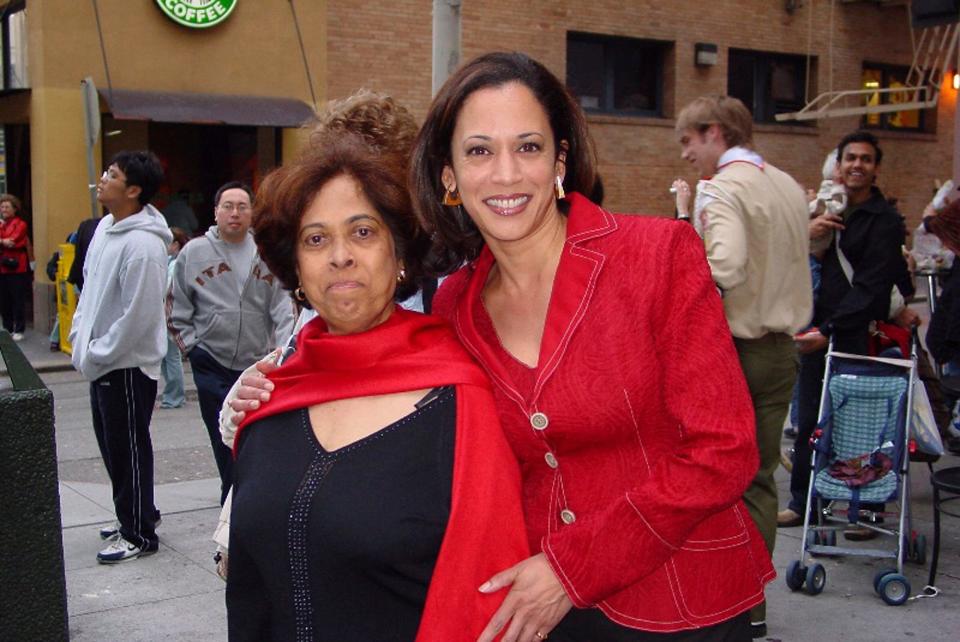
Harris and her younger sister, Maya, were raised by their mother after their parents divorced when Harris was 7.
Pauline Awino Pinnock, who was born and raised in Kenya and moved to U.S. in 2000, said as a Black mother raising a 12-year-old son, she lives in constant fear.
“I’m hoping a woman who is of color will understand the fear of millions of other women like me when it comes to their Black sons, husbands, brothers, and fathers,” said Pinnock, who lives in Valley Stream, Long Island, and runs a catering business with clients all over Westchester, New York.
Pinnock, whose husband’s parents are Jamaican immigrants, said listening to Harris talk about her mother not being taken seriously because of her accent resonated with her.
“As immigrants, working professionals, where we are judged because of the pronunciation of our names and our accents, it is refreshing to know that someone who could hold the second highest office in the country understands our struggles,” she said. “I just look forward to some normalcy where America is no longer the laughingstock of the world.”
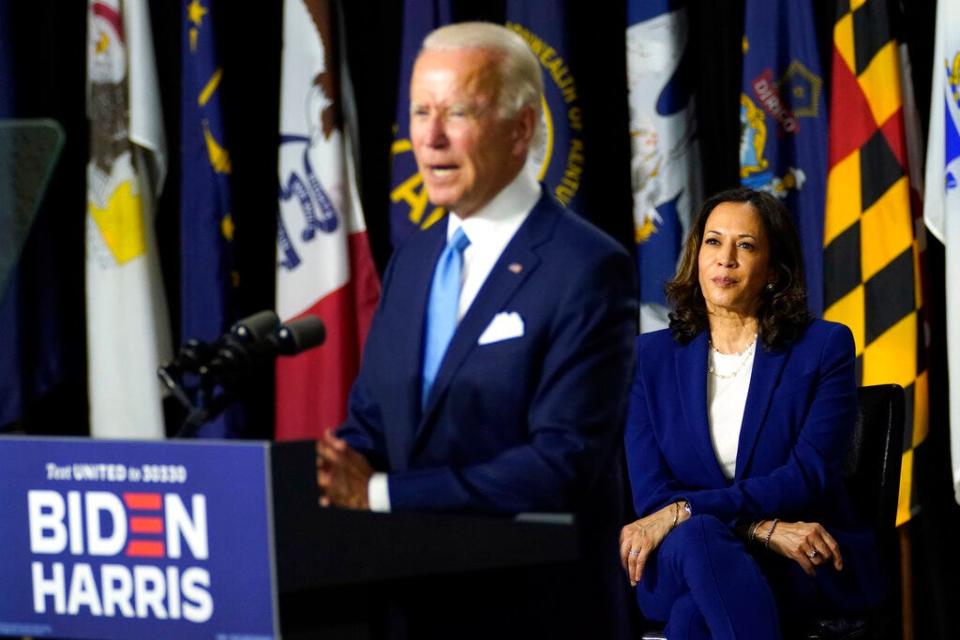
Biden's track record as former President Barack Obama's vice president, and his choice of Harris, shows that he can unify the country, said Pinnock.
"This is somebody who had no problem working under a man who was almost half his age, of a different race, came from an immigrant and a single mother and did his best," she said. "He did that well, under those circumstances, he's going to do much better right now."
For Indian Americans, one of the country’s wealthiest groups, according to the PEW Research Center, political engagement has largely been a passive activity consisting of writing checks to candidates.
The Biden-Harris ticket has the potential to galvanize both the volunteering and fundraising efforts of Indian Americans, said Makhija, a lecturer at the University of Pennsylvania.
Asian Americans are the fastest-growing segment of eligible voters in the U.S. out of any major racial or ethnic groups, according to the PEW Research Center analysis of Census Bureau data.
Among Asian American origin groups, U.S. Indian eligible voters have the highest median household income at $139,000.
Based on their income, Indian Americans have the potential to give $3 billion to $5 billion for charitable causes, according to a survey by Indiaspora, a nonprofit leadership group of Indian Americans. A 2018 study by Indiaspora also found that since 2000, people of Indian origin had donated $1.2 billion to U.S. universities.
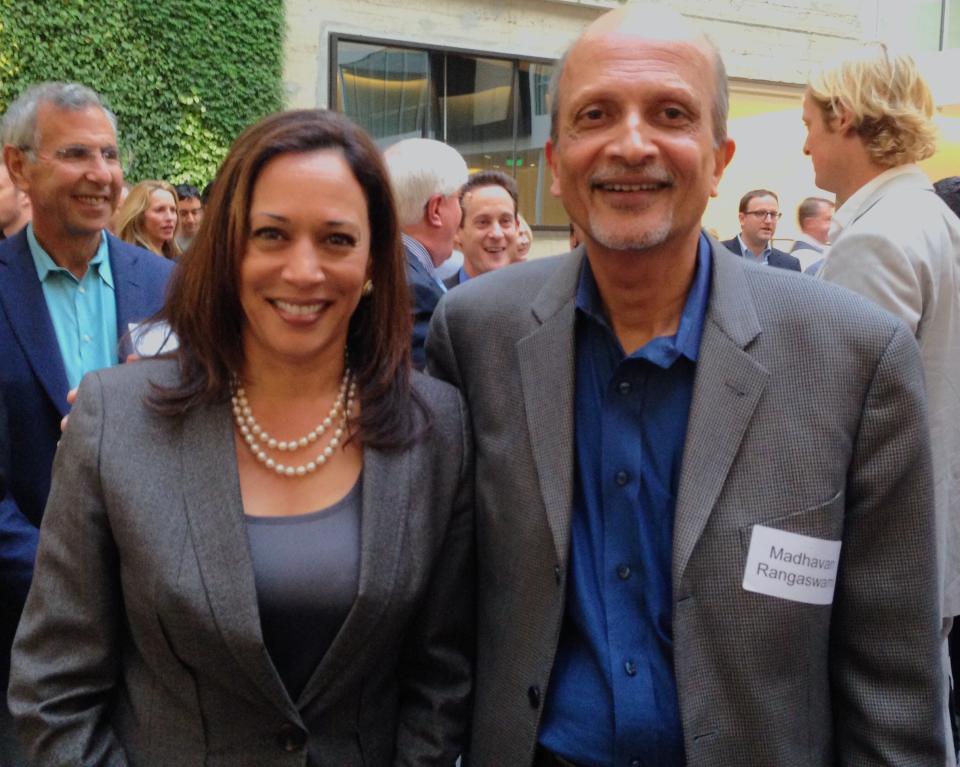
M.R. Rangaswami, co-founder of Sand Hill Group, a venture capitalist who established Indiaspora in 2012, said the community could make a big financial impact.
“I think she can energize a lot of other Indian American candidates running for office and that could have some down-ballot effect as well,” he said. “The money is going to flow in bigger numbers now. I'm hearing a lot of stories of big Indian fundraisers for Harris. definitely going to be a source of support and money.”
Between 1992 and 2012, campaign contributions by Asian Indians increased by more than seven times, according to a demographic study on Asian Americans and Pacific Islanders conducted by University of California at Riverside. During the same time, census data show the Indian American population had grown by less than half that rate.
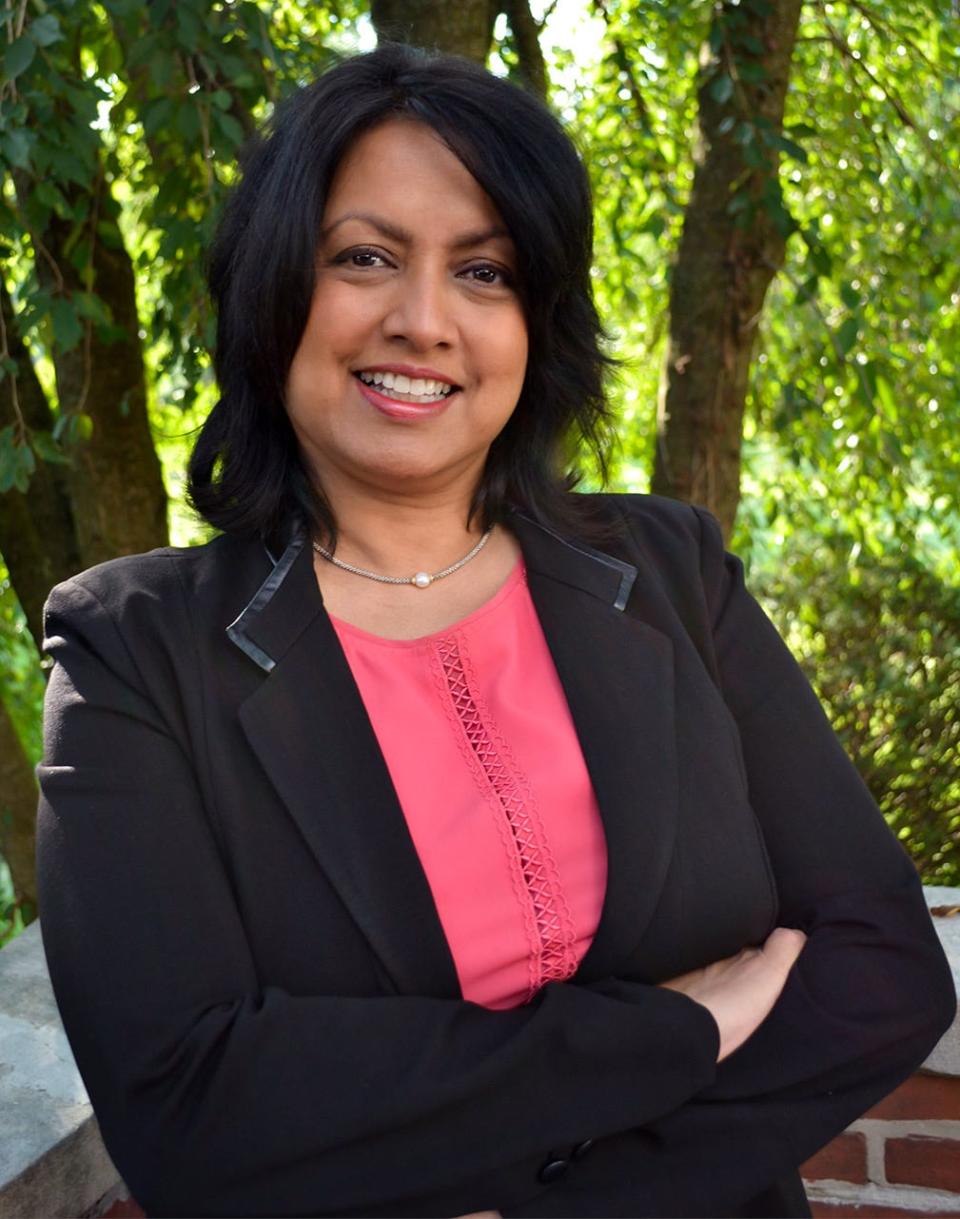
Nina Ahmad, a former Philadelphia deputy mayor and the Democratic nominee for Pennsylvania auditor general, is the first South Asian to be running for that office.
A Bangladeshi immigrant, Ahmad said Harris represented a new way forward for the country.
“We are a multi-racial, multi-ethnic country and she addresses the needs of the time,” said Ahmad. “She has lived experience as a Black and Asian woman. After four years of what this country has gone through, we are ready for change.”
Harris’ name on the ticket will inspire people of color, particularly Indian Americans, to run for office, said New Jersey State Sen. Vin Gopal (D-Long Branch), who in 2017 became the first Indian American to be elected to the state senate.
The rise of Indian American candidates to national prominence is a natural progression for a community that has more than doubled from 2000 to 2017, experts say. At more than 700,000 strong, the New York City region is home to the largest Indian American population among metropolitan areas, according to the 2013-2017 U.S. Census American Community Survey.
New Jersey and New York, at 4.1% and 1.9% respectively, have the highest numbers of Indian Americans as a percentage of the states’ population in the nation.
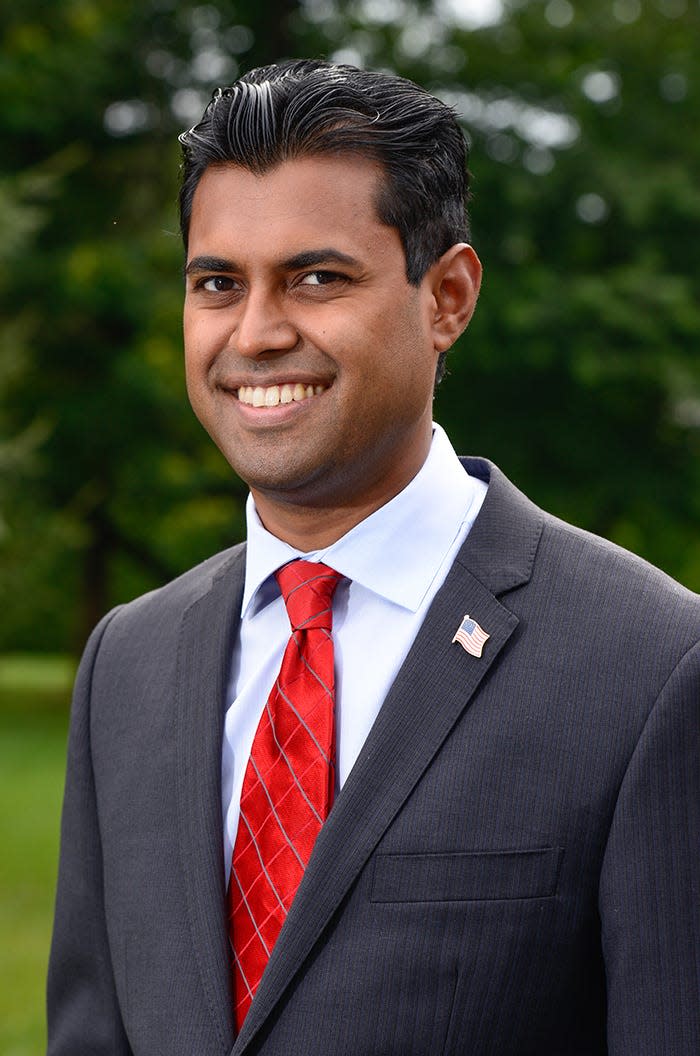
“A lot of Indian American parents really don't encourage their kids to get into politics. They want them to usually do something more secure, like math or science or medicine or engineering or business,” said Gopal. “But as we see more representation, the attitudes will change. After I was elected, the number of applicants for Senate internships that come in for around the state of Indian Americans has almost tripled versus from three years ago.”
Rajan said she was eager to get cracking on the Biden-Harris campaign.
“We were always the outsiders looking in. We were not invited to the party as the players,” she said. “Now I feel like one of the most important invitees and I feel a real enthusiasm to get my hands dirty, make the fundraising calls and do whatever is necessary.”
Swapna Venugopal Ramaswamy covers women and power for the USA Today Network Northeast. Click here for her latest stories. Follow her on Twitter at @SwapnaVenugopal. Support local journalism; go to lohud.com/specialoffer to find out how.
This article originally appeared on Rockland/Westchester Journal News: The Kamala Coalition: Kamala Harris inspires new breed of political players

